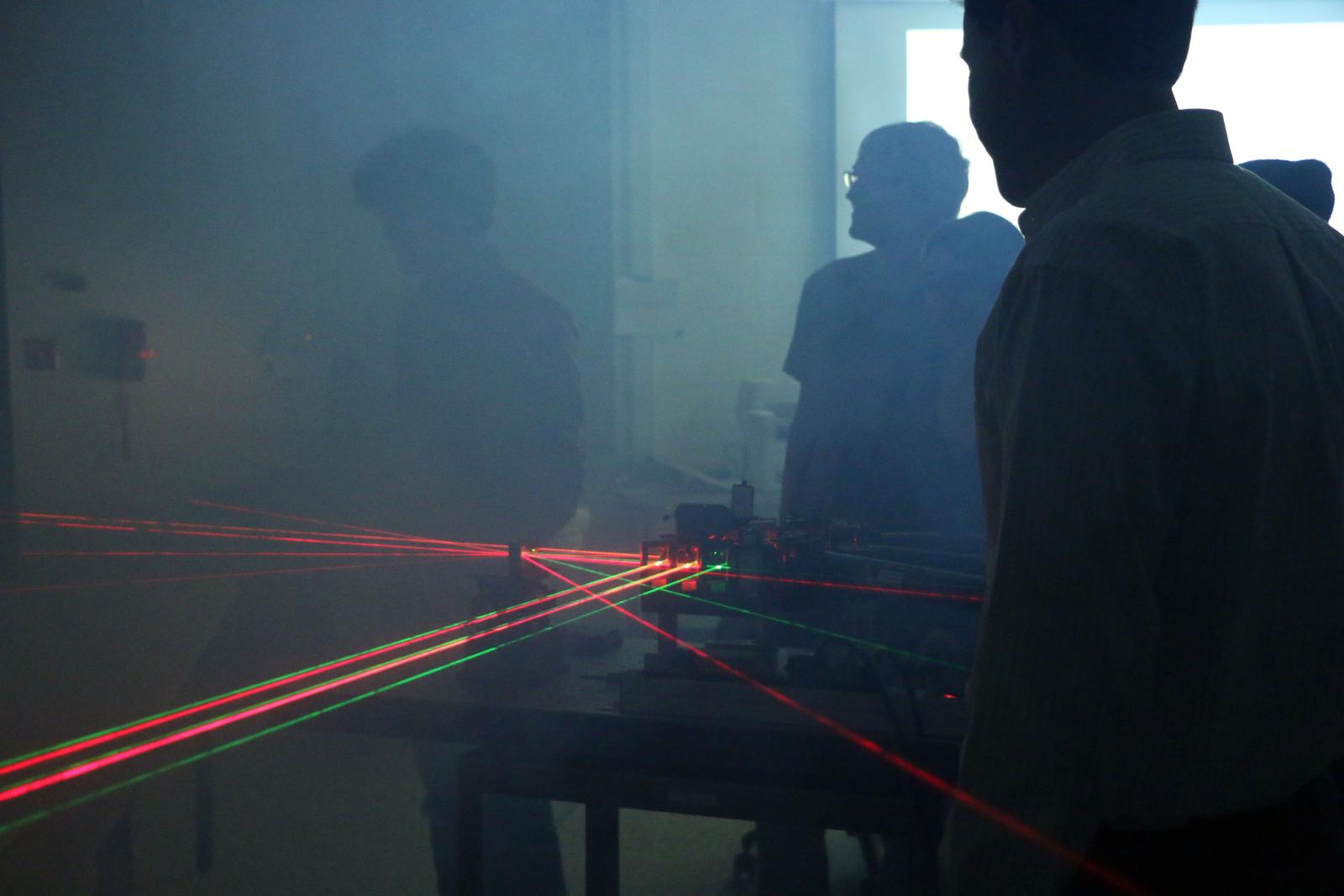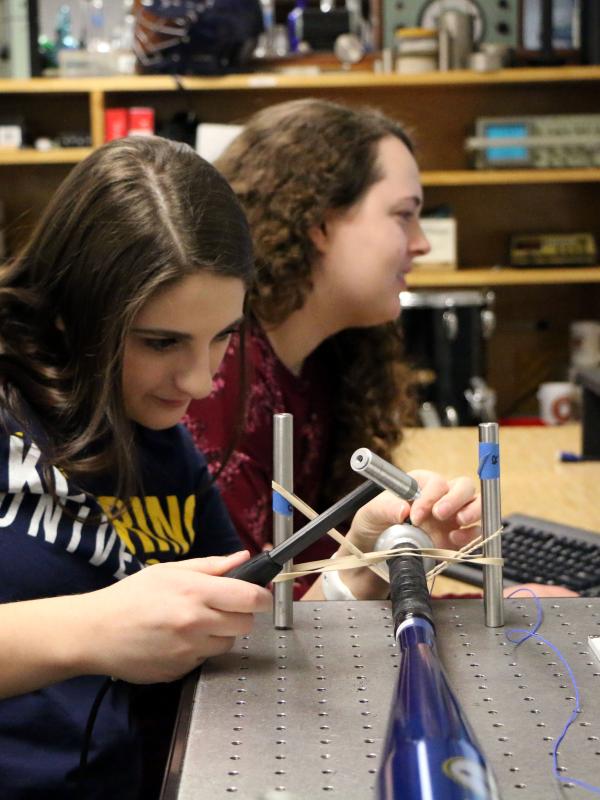Department of Physics
The Fundamentals of Science
Physics is the most fundamental science and underlies the understanding of nearly all areas of science, technology, and engineering. Physics is concerned with the study of energy, space, time, matter, the interaction between material objects and the laws that govern these interactions at various scales from sub nano-scale to light-years scale. Physicists study mechanics, sound, heat, light, electric and magnetic fields, gravitation, relativity, atomic and nuclear physics, solid state physics, wave-like properties of particles and particle-like properties of radiation.
Our Programs

Get In The Lab
From the first week of your first year you will be testing your skills in our labs equipped with sophisticated measurement equipment.
Environmental Scanning Electron Microscopy Lab
You’ll use one of Michigan’s most powerful microscopes to analyze the composition of materials that go into many popular products. You’ll be able to study the ingredients of anything from an outboard motor, to an artificial hip replacement, to an iPod.
Acoustics Lab
You’ll get a chance to analyze the behavior of anything that vibrates or makes sound. You can eliminate the dead spots on your electric guitar, measure & the sound radiation from a loudspeaker you designed and built, learn how to design and test a listening room, or find the sweet spot on a baseball bat.
Fiber Optics Lab
You’ll unlock the secrets of telecommunications. You’ll experiment with photonics and optoelectronics and learn how to create technologies such as barcode scanners and bandwidth testers.
Nanotechnology Lab
You can make iron oxide nanoparticles and microbubbles, characterize them using an x-ray diffractometer and optical microscope, and learn how they can be used as a potential method for cancer treatment via magnetically -induced hyperthermia.
Computational Physics Lab
You will develop and simulate mathematical models of dynamic physical systems. By applying physics theory to biological systems you will uncover the physical details of how cells undergo internal reorganization to change shape, divide, and crawl along surfaces.
